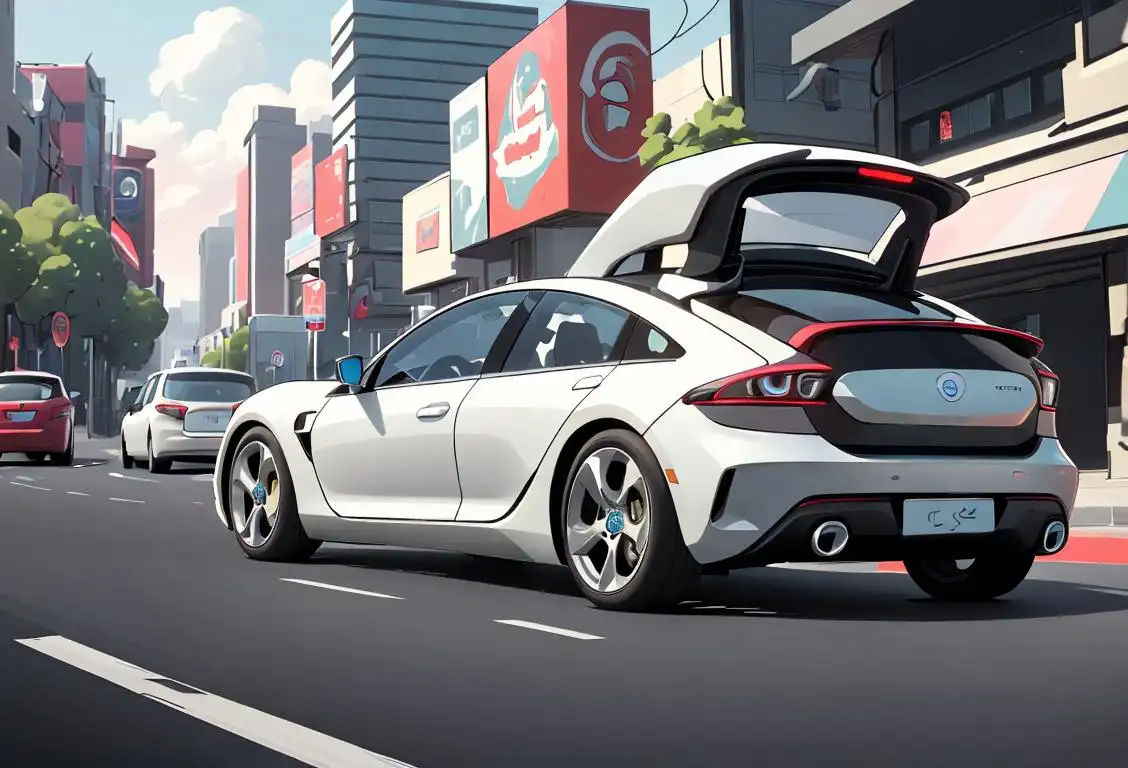National Alternative Fuel Vehicle Day

Welcome to National Alternative Fuel Vehicle Day! This is the day where we celebrate all things fuel-efficient, eco-friendly, and futuristic. Get ready to rev your engines quietly and save the planet one mile at a time! In this article, we'll dive into the fascinating world of alternative fuel vehicles and uncover some fun facts along the way.
When is Alternative Fuel Vehicle Day?
It's national alternative fuel vehicle day on the 20th April.
What's the Buzz about Alternative Fuel Vehicles?
Alternative fuel vehicles have been gaining traction (pun intended) over the past couple of decades. With concerns about climate change and the need to reduce our dependence on fossil fuels, these vehicles have become the cool kids on the block.
So, what exactly are alternative fuel vehicles? Well, they're cars, trucks, and even motorcycles that run on something other than the traditional gasoline or diesel. Instead, they use cleaner, more sustainable resources like electricity, hydrogen, biodiesel, natural gas, or even (wait for it) vegetable oil!
Electric vehicles (EVs) are perhaps the most popular alternative fuel vehicles today. They're sleek, quiet, and emission-free! Just plug them in, charge them up, and you're good to go. Plus, electric cars have great pick-up, so you can zoom past gas-guzzlers in style.
Did you know that the first practical electric car was invented way back in 1884? Yup, that's right! Thomas Parker, a British inventor, had the foresight to see the potential of electric vehicles. He built an electric car that could reach a top speed of 14 mph! Now that may not sound like much compared to today's EVs, but back then, it was quite the achievement.
Why Celebrate National Alternative Fuel Vehicle Day?
By celebrating National Alternative Fuel Vehicle Day, we're not only showing our love for shiny, eco-friendly cars, but also contributing to a cleaner planet. These vehicles emit fewer greenhouse gases, reduce air pollution, and help combat climate change. It's like a double win for Earth and our Instagram feeds (because, you know, aesthetics matter).
So, hop on board the alternative fuel vehicle train and let's ride towards a greener and more sustainable future. Join the movement today and show the world that you care.
History behind the term 'Alternative Fuel Vehicle'
1769
First steam-powered automobile
In 1769, Nicolas-Joseph Cugnot, a French engineer, built the first steam-powered automobile. This vehicle, known as the 'Fardier à vapeur,' used steam as its source of power and can be considered one of the earliest forms of alternative fuel vehicles. While steam-powered vehicles fell out of favor due to their heavy weight and slow speed, they were an important milestone in the development of alternative fuel technology.
1888
Electric Vehicle boom
The late 19th century saw a surge in interest and development of electric vehicles. In 1888, Thomas Parker, a British inventor, patented the first practical production electric car. Electric vehicles quickly gained popularity due to their quiet operation and zero emissions. By the early 1900s, electric taxis were a common sight on the streets of cities like New York and London.
1908
Introduction of the Model T
In 1908, Henry Ford introduced the Ford Model T, an affordable and reliable gasoline-powered vehicle. The widespread adoption of the Model T led to the popularity of gasoline as the dominant fuel source for automobiles. Gasoline-powered vehicles remained the norm for several decades, overshadowing alternative fuel options.
1970s
Environmental awareness and oil crisis
The 1970s marked a turning point in the search for alternative fuel options. Growing concerns about environmental pollution and the dependency on fossil fuels intensified efforts to develop cleaner and more sustainable transportation alternatives. The oil crisis of this decade, caused by geopolitical tensions, further highlighted the need for alternative fuel vehicles as a means to reduce dependence on foreign oil.
1990s
Rise of hybrid vehicles
The 1990s witnessed the emergence of hybrid vehicles, which combined internal combustion engines with electric motors. The Toyota Prius, launched in Japan in 1997, became the first mass-produced hybrid car. Hybrid vehicles offered improved fuel efficiency and reduced emissions compared to conventional gasoline-powered cars, setting the stage for the future development of alternative fuel vehicle technologies.
21st century
Expanding range of alternative fuel options
With increasing concerns about environmental sustainability and the need to reduce greenhouse gas emissions, the 21st century has seen a significant expansion in the range of alternative fuel vehicles. This includes vehicles powered by compressed natural gas (CNG), biodiesel, hydrogen fuel cells, and fully electric vehicles. Governments, industries, and individuals around the world are actively promoting and investing in these alternative fuel technologies as part of efforts to achieve a greener and more sustainable future.
Did you know?
Did you know that the fastest electric car in the world is called the 'Rimac C_Two'? It can go from 0 to 60 mph in just 1.85 seconds! That's faster than a blink of an eye. Maybe it's time to reconsider what we think about electric cars and their speed, huh?Tagged
awareness fun technology environment sustainabilityFirst identified
20th April 2017Most mentioned on
20th April 2017Total mentions
10Other days
Alternative Fuel Vehicle Day
Battery Day
Garbage Day
Campus Sustainability Day
Energy Conservation Day
Climate Action Day
Arbor Day
Stem Day
Tree Planting Day
Bike To Work Day








